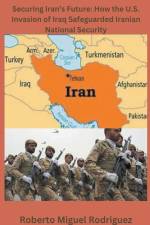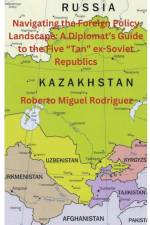av Roberto Miguel Rodriguez
251
"Proxy Wars" provides an in-depth analysis of the Yemen conflict, highlighting its transformation from a local power struggle to a geopolitical battleground where regional powerhouses, namely Iran and Saudi Arabia, vie for dominance. As the title suggests, Yemen has become a stage where these two nations, representing differing sects and interests within Islam, further their regional ambitions through proxy actors.Key components of the book include:Historical Background: A primer on Yemen's complex political, social, and religious tapestry, setting the context for the contemporary conflict.Roots of Rivalry: An exploration of the historical tensions between Iran and Saudi Arabia, covering religious differences, oil politics, and regional aspirations.The Houthi Movement: A deep dive into the rise and beliefs of the Houthi rebels, including their grievances, motivations, and the extent of their ties to Iran.Saudi Arabia's Stance: An examination of Saudi Arabia's reasons for intervention, its coalition partners, and its broader goals in the region.Battles and Dynamics: Detailed accounts of key battles, turning points, and the fluctuating fortunes of the warring factions.Humanitarian Crisis: Highlighting the devastating toll of the conflict on Yemen's civilian population, from famine to epidemics, displacement, and the breakdown of societal structures.International Involvement: An analysis of the role of global powers, from the United States to China and Russia, in shaping the trajectory of the conflict, whether through arms sales, diplomatic channels, or alliances.Pathways to Peace: Speculations on potential resolutions, considering international mediation efforts, regional dynamics, and the aspirations of the Yemeni people."Proxy Wars" is an illuminating journey into the shadows of a conflict that, while often overshadowed by other global events, holds significant implications for regional stability, global energy markets, and the future of geopolitical alliances. Through meticulous research and expert analysis, the book offers readers a holistic understanding of a war where local grievances and global ambitions are inextricably intertwined.






























